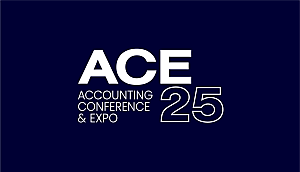My presentations were on moving your practice from compliance to 'reliance' and how to profit from compliance. These are really fancy terms for the process that needs to be adopted to implement sustainable and profitable business advisory services in an accounting firm.
You’re out of free articles for this month
At Smithink 2020 we recommend firms following the Enabler – Seven Steps to Success system.
This system is predicated on Step One – Preparing your Firm for Success. This is where all the problems start. There are many reasons why firms fail to implement; however, they can all be grouped into a lack of commitment and capacity. This has to be addressed and the best place to start is to develop a business advisory implementation plan that sets out where the firm is now, where it wants to get to in the future and the steps needed to achieve this with realistic milestones and KPIs.
Key initiatives I have observed overseas that create 'back-end' efficiencies in firms and assist with the 'front-end' business advisory service delivery include the following. (Some are done well while others are still in the infancy stage; however, the drive is there to move down this pathway.)
• Good quality document, practice and workflow management systems that create the time for business advisory service delivery. The key to this one is the attempted removal of the 'silo effect' of too many databases in a practice that do not integrate. The future has to be totally integrated solutions that communicate with each other. May be a 'slow burn' here; however, most firms recognise the benefit.
• Scanning systems integrated to practice management and document management software then will scan documents via optical character recognition directly into taxation returns and the like. This is very popular in Canada.
• Secure web portals to store client information, both historical and business advisory, and provide upload and download access to client files. This is strong in the Canadian markets and in my opinion is a very effective and secure way to communicate with clients and protect data subject to privacy laws.
• Developing knowledge management solutions that unlock and organise the knowledge of a firm for staff management and future sale enhancement.
• Cloud solutions, including online accounting systems for clients, are getting get good traction in the South African accountants' market albeit slowly. There still seems to be some reluctance [regarding] cloud data storage and retrieval in the Canadian market. The feeling there, however, is that this will change sooner rather than later.
• Using cloud-based financial diagnostic software proactively to deliver consultations on turning numbers into knowledge, strength and weakness analysis, strategic 'what if' management, realisable goal-seeking and projection of current drivers to see the impact on future performance results.
• Managing lending covenants for clients by preforming pre-lending assessments well before the client intends to seek funds from the banks can create a win-win for clients and the lender, as well as a new source of income for the practice.
• Delivering micro strategies to help clients collect debts, manage inventory/WIP, understand volume and price movements etc …
• Upselling business advisory services by offering 'How would you like to see the financial impact of every business decision before you make it?' services and scenario planning consultations. Accountants in South Africa found this offering very attractive from a client perspective, but recognised training and practice is needed to sell and deliver this innovative service.
• Working towards social media (Facebook, LinkedIn, Twitter) as a source of practice information and selling of business advisory services. There may be a need to outsource this activity if the firm does not have capacity or a 'young gun' who can manage this.
• Developing websites that sell the practice and its services, not just inform. Firms in South Africa told me that clients generally are not interested in reading information from taxation department websites and the like. There is a need to provide more value through websites.
So, where is your firm now? Have you taken the first step forward to preparing your implementation plan?
Don’t wait for other firms to pass you by. The time for action is now!

 Login
Login







